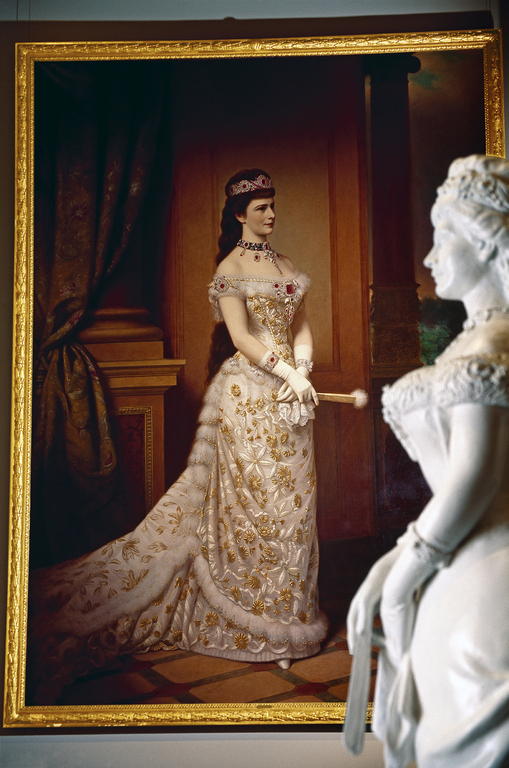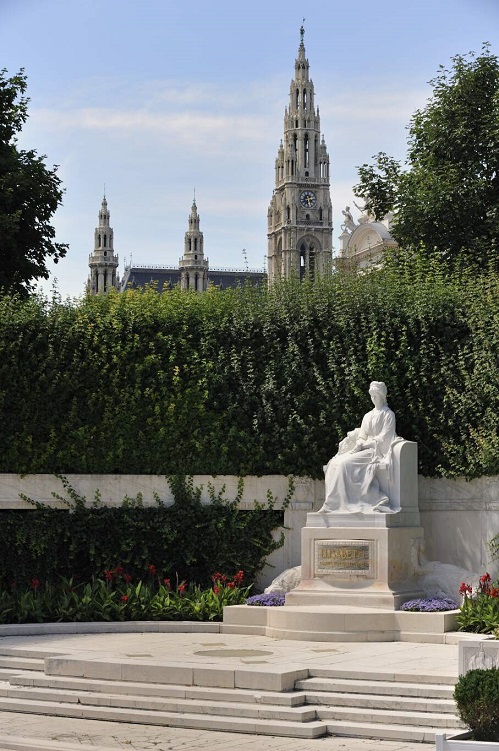The world-famous Empress Elisabeth (born in Munich in 1837, murdered in Geneva in 1898) is considered one of the most beautiful women of her time. At the age of 17, she married Emperor Franz Joseph I – and found herself confronted with the strict rules of the Viennese Imperial Court.

It is no wonder that this carefree, freedom-living girl took advantage of every opportunity to escape the rules and everyday life of the court. Her favourite ways of occupying her time included hours of reckless horse-riding, as well as personal hygiene and beauty. She had a mind of her own and she knew all too often how to use it, as the maid who dealt with her dietary wishes found out.

Today in Vienna, you can follow in Sisi’s footsteps at various hotspots: at Schönbrunn Palace, at the Sisi Museum in the Hofburg, or even in the Imperial Crypt in St. Stephen’s Cathedral. Furthermore, she has been immortalised throughout the city by way of several monuments.
Sisi – fashion icon and superstar
Due to her natural beauty and radiance, Sisi was admired by men and women alike. She was considered a fashion icon and superstar during her time. However, behind this beautiful façade, Sisi’s life was not always so glamorous. She suffered from the enforced etiquette and her desire for her husband Franz, whom she loved deeply but saw increasingly less often due to his obligations. And although he loved his wife too, he had inherited a certain coldness from his mother, and Sisi felt the effects of this as much as his excessive sense of duty and arrogance.
Sisi gave Franz altogether four children:
- Archduchess Sophie (died at just 2 years old)
- Archduchess Gisela
- Crown Prince Rudolf (committed suicide at age 31)
- Archduchess Maria-Valerie
Her relationship with Emperor Franz Joseph I did not improve with time, whereby later letters would tell of carefree times together. Marked by calamity and her living situation, the Empress left the court increasingly more often.
Her trips were always extensive, which was good for her health and soul. Eventually, she did become interested in politics: she advocated independence in Hungary and was crowned Queen there. Nevertheless, she ultimately took more pleasure in poetry than in politics. The empress died at the hands of Italian anarchist Luigi Lucheni in Geneva when she – while out and about incognito – was on her way to board a ship and he stabbed her in the chest with a needle.


